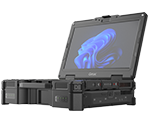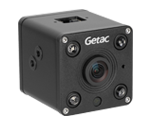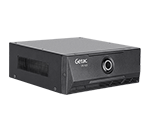Responsible Minerals Sourcing Policy
As a corporate citizen of the world, Getac supports the work of the Responsible Minerals Initiative (“RMI”). We commit to eliminate any use of conflict minerals that are mined in areas experiencing armed conflict or under conditions that violate human rights, specifically the 3TG (tin, tungsten, tantalum and gold) and cobalt extracted from the Democratic Republic of the Congo and neighboring countries.
Conflict-free Sourcing Policy
In order to prevent use of conflict minerals in Getac's raw materials, since 2015 we have incorporated our own Supplier Code of Conduct with an emphasis on practices involving inclusion of minerals in our Master Purchase Agreement required of all suppliers who wish to obtain Qualified Vendor status. For those suppliers with whom we transacted prior to 2015, a separate document was designed to make clear Getac’s stance with respect to eliminating nonconforming sources of minerals and urge their own effort towards the same goal.
It is our express requirements to all suppliers whose products may contain any 3TG and cobalt to prohibit such minerals or their derivatives originating from the Democratic Republic of the Congo or its adjoining regions. Further, suppliers are also banned from supplying any 3TG and cobalt sourced from smelters or mining plants that directly or indirectly finance or benefit armed conflicts or activities that violate human rights.
Reasonable Country of Origin Inquiry (RCOI)
Realizing our duties towards the society as a responsible member of the electronics manufacturer community, we do not stop at carefully articulated sourcing policies to remove potential sources of conflict minerals in our supply chain.
Every year, suppliers of materials that may contain minerals of any kind receive our inquiry following the Conflict Minerals Reporting Template (“CMRT”) and Extended Minerals Reporting Template (“EMRT”). They are required to respond accordingly with detailed information regarding the smelters and/or refiners they work with or source from. CMRT and EMRT are developed by the RMI in order to improve information transparency through the supply chain regarding origin of minerals and the smelters and refiners involved.
When it is unable to determine the country of origin of the minerals contained in certain materials supplied to us, we employ other methods to continuously input efforts towards ascertaining that Getac does not contribute to any conduct that abuses human rights in the supply chain. The methods include follow-up engagement with suppliers for the purpose of obtaining information about their suppliers, making information available to suppliers for their better understanding of the importance of their participation in excluding conflict minerals, and utilizing the list of conformant smelters and refiners published by the RMI to improve conformance of suppliers.
Getac aspires to continue raising awareness among our partners and encouraging involvement of more members of the community by constantly educating ourselves on and following the best practice in the industry regarding responsible sourcing.
Getac’s Conflict Minerals Due Diligence Measures
Despite our endeavors mentioned in the above, the outreach of our actions is inevitably limited by the complex and multi-layered supply chain. Knowledge of the foregoing obstacles and other challenges revealed by our annual RCOI encouraged us to design a set of standard due diligence measures referencing the five-step framework introduced in the OECD Due Diligence Guidance for Responsible Supply Chains of Minerals from Conflict-Affected and High-Risk Areas (“OECD Guidance”) to verify where we stand and identify what’s more to be done.
Below are the descriptions of Getac’s Conflict Minerals Due Diligence Measures:
1. Establishing company management systems:
As part of Getac’s due diligence measures, practices involving sourcing of materials which may contain minerals are explicitly regulated in agreements or other documentations exchanged with our suppliers. Our procurement department is well-educated on the company’s sourcing policy and is directed to firmly implement all the notice or sign-back requirements. As of 2024, 144 suppliers have signed and returned the Letter of Undertaking for Environmental and Social Responsibility which includes the Letter of Undertaking for Non-use of Conflict Minerals.
Adding to the requirement of written commitment, it is also mandatory that suppliers of materials containing minerals answer our annual inquiry in CMRT and EMRT format with sufficient details regarding their suppliers and, more importantly, to identify the smelters and/or refiners of minerals in their products. The list of smelters and/or refiners identified in our 2024 CMRT and EMRT (cobalt only) inquiry can be found at Smelter and Refiner List for 3TG and Cobalt Identified in Getac Responsible Minerals Sourcing Program for Y2024.pdf.
In order to enhance the efficiency of our measures and to mitigate the burden on our suppliers with regard to their responsibilities for the transfer of information, Getac has procured third party software to streamline the reporting process for our suppliers.
2. Identify and assess risk in the supply chain:
Being a manufacturer of electronic end products, the many layers between us and the mines from which the minerals in the raw materials supplied to us are sourced effectively prohibit us from getting a first-hand clear picture of where risks lie. In light of such challenges, we have been targeting the smelters and refiners of the minerals contained in our raw materials for the purpose of risk identification and assessment.
Upon receiving results provided by our suppliers in response to the annual CMRT and EMRT inquiry, our designated specialists would record all the disclosed smelters and refiners and, with help of the list of conformance smelters and refiners published by the RMI, identify any non-conforming smelter or refiners in our supply chain.
3. Design and implement a strategy to respond to identified risks:
After information collection, all the suppliers whose CMRT and EMRT responses reveal engagement with non-conforming smelters or refiners will be identified. We make our best efforts to communicate with such suppliers to redirect their spend to conforming smelters and/or refiners to avoid involuntary contribution to human rights abuses. At the same time, we are constantly looking for alternative sources of the highlighted materials which may contain conflict minerals.
4. Carry out independent third-party audit of supply chain due diligence at identified points in the supply chain:
Getac strives to continue to better its conflict minerals due diligence systems and plan to involve further internal and third-party effort into perfecting its supply chain management mechanism.
5. Report on supply chain due diligence:
List of smelters and refiners will be published annually on Getac website for transparency of information, improvements and changes we make to our supply chain due diligence system will also be updated when available.


























